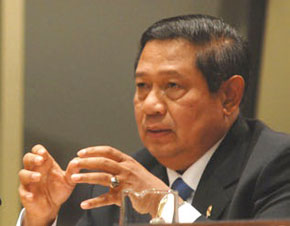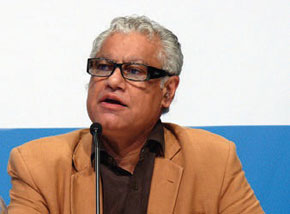A Step Towards Hepatitis C Treatment Access in Thailand
In August 2012, Thailand added two medicines used for the treatment of hepatitis C virus (HCV), pegylated interferon alpha 2a and 2b, to its national list of essential medicines, making the drugs eligible for coverage by government health insurance schemes. This is the first time that the national public health system has committed to providing HCV treatment for the general public. However, the guidelines for using pegylated interferon are limited to patients with certain types of HCV (genotypes 2 and 3). This excludes the harder to treat genotypes and also people living with HIV. Physician and patient groups are advocating for policies that allow for expanded access to treatment.
Indonesia Issues Compulsory Licenses for Seven HIV Medicines

The President of Indonesia, Susilo Bambang Yudhoyono
Photo: Agência Brasil |
In September 2012, the President of Indonesia, Susilo Bambang Yudhoyono, issued a decree allowing the government to produce seven HIV antiretrovirals outside of their patent protections. The list includes medicines that can be used to prevent HIV infection as well as those shown to have fewer side effects than the drugs currently used in Indonesia. Although this could mean wider availability of newer and safer medicines for people living with HIV in Indonesia, it remains unclear whether local Indonesian pharmaceutical companies will be capable of making these medicines and getting them to patients in the near future. TREAT Asia is working with civil society organizations in Indonesia to provide patient groups with treatment education on the newer regimens that may be used in the future.
India Revokes Patent for Hepatitis C Medicine

Anand Grover, Director of the Lawyers Collective HIV/AIDS Unit, appeared as legal counsel in the case overturning the hepatitis C product patent in India.
Photo: Lawyers Collective |
The Intellectual Property Appellate Board in India revoked the patent on Pegasys® (pegylated interferon alpha 2a) in November 2012. The current price of the commercial version of this HCV medicine has been cited as a major barrier to accessing treatment. This patent was the first to be approved in India after the country became compliant with the Trade-Related Aspects of Intellectual Property Rights (TRIPS) agreement in 2005, and this is the first decision on an application challenging the patent after it was granted. Indian community organizations are hoping that revocation of the patent will prompt local drug manufacturers to start producing and distributing high-quality versions of this medicine at lower prices.
Does the Trans-Pacific Partnership Threaten Access to HIV Treatment in Thailand?
In November 2012, Thailand expressed its interest in the possibility of joining the Trans-Pacific Partnership (TPP) negotiations, a free-trade agreement involving 11 countries and promoted by the U.S. government. Thai HIV advocates fear that this will hold the Thai national HIV/AIDS program back from expanding treatment coverage, as the TPP includes intellectual property protections that they believe will block availability of low-cost generic antiretroviral medicines. At the request of Thai civil society organizations, TREAT Asia and its regional partners ITPC, APN+, and MSF Access Campaign wrote a letter to the Prime Minister of Thailand expressing concerns over the TPP and reminding her of Thailand’s ability to use existing trade flexibilities to continue accessing affordable antiretroviral medicines in Asia.